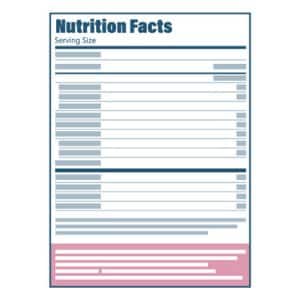Polyols are sugar-free sweeteners. Polyols are carbohydrates but they are not sugars. They are used cup-for-cup [volume-for-volume] in the same amount as sugar is used. There are different types of polyols, including erythritol, hydrogenated starch hydrolysates (sometimes listed as maltitol syrup, hydrogenated glucose syrup, polyglycitol syrup, polyglucitol or simply “HSH”), isomalt, lactitol, maltitol, mannitol, sorbitol and xylitol.
Polyols, at a glance

Polyols are found naturally in a variety of fruits, vegetables and plants.

Given that polyols are not fully absorbed and metabolized by the body, they have fewer calories than sugar.

Polyols may be useful for those managing diabetes.

Polyols do not cause tooth decay.

When looking on the nutrient facts panel or ingredients list, the word ‘polyol’ will not be included. Instead, look for the individual name of the polyol on the label (e.e Erythritol, Isomalt, etc.)

Polyols are categorized as carbohydrates and sugar alcohols, but have characteristics that resemble both sugar and alcohol.
Polyols and foods containing them should be consumed as part of an overall healthy diet, such as those outlined by the Dietary Guidelines for Americans.

